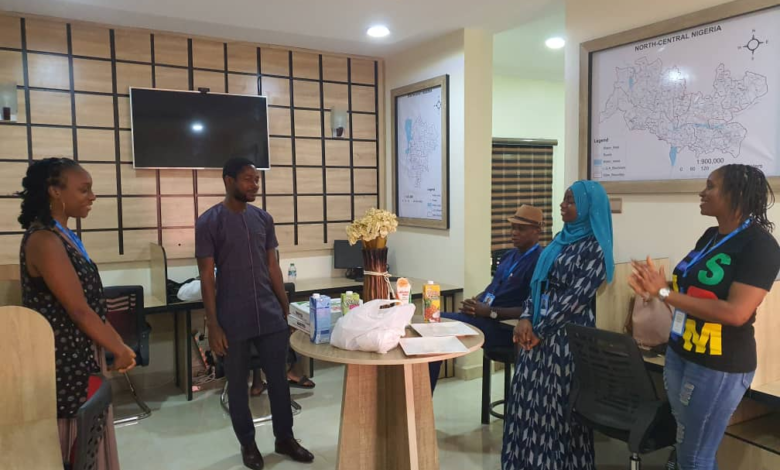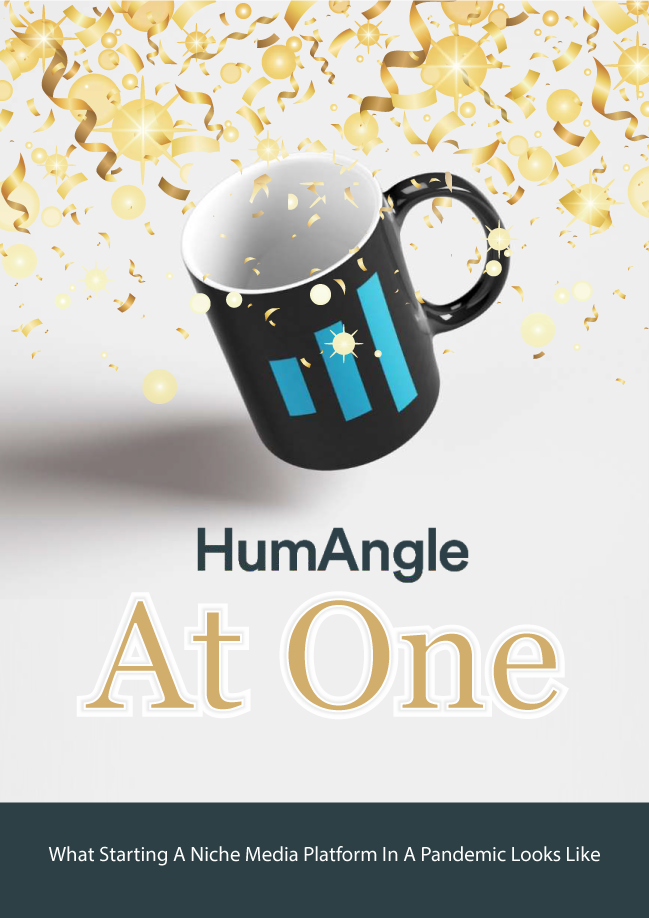
Picture this – a lot of investments and time had gone into setting up a company with a niche Unique Selling Proposition (USP), the founders eventually found young minds to share in the dream, and just as soon as everyone is familiarising themselves with the tasks and motions, a lockdown happens.
For many organisations, there was already some shared familiarity with the people and the processes that were built from constant in-person communication before they had to switch to remote work. HumAngle Media, at the time, did not have the same luxury.
After studying the mission and vision, then deciding that I wanted to channel my skills towards its realisation, I had no pre-warning that a pandemic was going to add extra strain on my job – which is primarily to make sure that every piece of editorial work is at its finest. The team is continually evolving to provide editorial value to our esteemed audience.
Everyone who followed the news knew there was a virus raging through China and some parts of the world, but at the time, Nigeria was exempt. Next, the virus had entered Nigeria, and there was an entire dance on nipping it in the bud by the Nigerian government, which did not happen hence the need for a lockdown by April 2020. There is no need to get into the details, but you and I are familiar with this story.
The first order of business for me when we all started to work from home was to convince strangers to carry on with their work as a unit, as if nothing had changed.
I was kidding myself because something did not just change; a lot had. I worked with the team to initiate a work-from-home protocol mainly based on the trust that every person’s character would do the heavy lifting. On this, they came through. We swung into action fast, seeing as we had a website to fill up with quality content.
Our initial ideas had to be rolled into a more significant purpose, starring; crisis-signalling, conflict analysis, development reporting, and a hefty addition, COVID-19 coverage. I need to point out that some of the team’s reporters had not been employed as journalists before but had come in as experts in their various sectors.
Training these experts to take on reporting, in all its glory, was done on-the-go, which was not the original plan. Like real troopers, they learnt on the job and fast too. Editorial decisions were taken over Zoom meetings; progress tracked via Trello, urgent banters on Instant Messaging apps, and limited use of emails to reduce the seriousness of an already severe situation.
By the third week into the lockdown, we had found our rhythm. Our article views were flying, the idea bank was overflowing, and the audience took a particular liking to us. Every day, we brainstormed in groups on ways to beat the last piece. We were a small team, and there was an intimacy of purpose that was building fast. We recognised that our work was not perfect, and as individuals, each of us needed to build individual capacity so we could deliver the best as we went along. We stayed focused on serving value by reinventing ourselves.
When I thought we had got the new process’s hang, things started happening individually to shake the dynamics. A month into lockdown, I started getting messages and calls from some team members that indicated fatigue.
At this time, I think almost everyone in Nigeria was bored and tired. Many people were doing the same things, going through the same cycles, and most were resting. Their boredom had come from too much rest. For us, we could not relate to the rest banter on social media. We were kicking off a media company, and it was no joke. We were working.
Let me paint you my picture – I wake up at 6 a.m., prepare like I am going to the office, and pick my laptop after my morning routines; I am checking emails and messages, while taking at least five phone calls from an editor, reporter, or someone in IT asking for something about a story, a person or the other.
I will then settle down to edit reports, work on my reports and check on team members to ensure that all is well. Then I have research to do on various subject matters daily. This will go on till our last story is published at 8 p.m. Afterwards, I stay up to make a list for the next day, track progress from the work apps and give recommendations before I turn off the lights.
Soon, other members of the team started suffering personal hits. From losing family members, tending to sick family members over the phone because there was a travel ban during the lockdown, falling sick themselves, to just generally being unable to access the things that gave them little escapes. There is just so much motivation that can be done over the phone or talks you can give to let people know you are on their side.
I was tired, but I could not afford to show fatigue as it would weaken the morale of the other team members. I switched tactics and gave reporters breaks instead, finding ways to spread their work around or simply take it up myself. In all these, the co-founders made it easy for me to make certain transitions because they were on hand to guide and advise. I had never managed a media team of this scale before and I still have a lot to learn. But this journey has been fruitful thus far.
I remember some team members were worse hit than others and just shut themselves off from the world. They had no fortitude to do anything. There was already an uncertainty that hung over most Nigerians’ heads, and battling a pandemic does not make one immune from other battles. The world already had its hard moments but it has never stopped life from happening before so it kept on.
Continue reading …
Support Our Journalism
There are millions of ordinary people affected by conflict in Africa whose stories are missing in the mainstream media. HumAngle is determined to tell those challenging and under-reported stories, hoping that the people impacted by these conflicts will find the safety and security they deserve.
To ensure that we continue to provide public service coverage, we have a small favour to ask you. We want you to be part of our journalistic endeavour by contributing a token to us.
Your donation will further promote a robust, free, and independent media.
Donate HereStay Closer To The Stories That Matter





